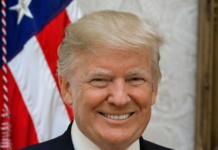The British High Commissioner in Ghana in an address to students at the Legon Center for International Affairs and Diplomacy speaks on the subject of the UK’s Africa Policy and to discuss how much Africa matters to us and why Africa has been, and will remain, central to Britain’s foreign policy objectives.

British High Commissioner in Ghana
On top of the current economic challenge, we have lived through a very demanding decade and more in foreign policy. Perhaps the greatest challenge has been the perverted ideology that drives Islamist or jihadi extremism, defeating which is clearly a generational challenge.
Defeat it, we will. But for now, ISIS continues its brutal campaign of murder and repression across northern Iraq and Syria.
Growing insurgencies in Libya and Yemen threaten further instability. Boko Haram in Nigeria and its neighbours; Al Shabab in Somalia; and other extremist groups in the Sahel all threaten security, including ours and Ghana’s.
In concrete terms, the three main themes of UK Foreign Policy as: Firstly, safeguarding Britain’s national security by countering terrorism and weapons proliferation, and by working to reduce conflict around the globe. We do that in part by maintaining the UK’s global role, as an active permanent member of the UN Security Council, the EU, NATO, the G7, the G20 and the Commonwealth and other key parts of the international architecture.
Secondly, building Britain’s prosperity by increasing exports and investment, opening markets, ensuring access to resources and promoting sustainable growth, including by connecting our economy to the world’s fastest growing markets. The UK has always been an open economy that thrives on trade. So, we will prosper when we build strong relationships with other countries that are prospering.
How does Africa fit in?
Returning though to the purely governmental sphere, we believe that an active and activist UK foreign policy must have Africa at its heart. Many of the world’s fastest growing economies are in Africa. Africa has vast human and physical resources and enormous potential. At the same time, parts of Africa are still wracked by abject poverty and crushing conflict which we seek to make a contribution to solving – not least as we also have a historical and moral responsibility to this continent, given our colonial past.
That is why, for example, we came to the aid of Sierra Leone, both when its democracy was subverted in the 1990s and, recently, when it was ravaged by Ebola. That is why the UK has been the leading international player in combating sexual violence in conflict, Female Genital Mutilation, early and child marriage, and the disease of malaria which still kills each year so many multiples of those who have died from Ebola. All of these scourges affect Africa disproportionately and Britain wants to be a major player in addressing them – it is the right thing to do.
But more widely, our Africa policy means that we need genuine partnerships with African countries. Our shared history, family and cultural connections mean that we are committed to partnerships with African countries, through the good times and the bad. Africa is important to us because African communities are also part of the fabric of the UK and what happens here affects us.
There are over 40,000 UK nationals living in Nigeria; 10,000 here in Ghana, 4,000 in Sierra Leone. 500,000 Nigerians and 90,000 Ghanaians live in the UK, though the respective Diasporas are much larger when you factor in the second and third generation populations who are now UK citizens. We think that there are over a quarter of a million British citizens who claim Ghanaian heritage.
But we also know that this continent’s very diversity means that there can be no one single Africa narrative, including in our foreign policy.
Africa is a continent of 54 countries, over 2000 languages with almost 150 million Arabic speakers. There are over 3000 tribes, ethnic groups and peoples. It has a population of over a billion ……. and growing.
In 2010, the combined population of sub-Saharan Africa was 800 million. By 2040 it will be 1.5 billion. By 2025 one quarter of the world’s population under the age of 25 will live in sub-Saharan Africa and by 2050 one in four people on the planet will be African.
And it is also a continent of mammoth proportions: the distance between Cairo and Cape Town is greater than that between London and Lahore in Pakistan.
Africa is a dynamic place of entrepreneurs, opportunities, an aspirant middle class and a vibrant youth culture. And this is the Africa the UK government has sought to engage.
So what are we actually doing?
The UK government believes that it is in our national interest to promote prosperity and security in Africa. We need our partners to be stable, prosperous and secure.
So we work to address the challenges and maximise the opportunities of each of our African partners. A key recent policy has been to re-position the UK’s relationship through:
- bilateral expansion, increasing our footprint in Africa, where we have opened or re-opened 6 new embassies over the last 5 years in Cote D’Ivoire, Madagascar, Mali, South Sudan, Somalia, and Liberia;
- Increasing our development spend on economic development, getting alongside private sector interest in Africa to drive sustainable and inclusive growth that will reduce poverty by creating jobs, and reduce dependency on aid;
- And championing financial inclusion. Through the Department for International Development, we promote and support the use of technology like mobile money and branchless banking to make it possible for people to overcome the barriers to access, as well as working with African governments to make the operating environment for business simpler, fairer and, crucially, more transparent.
At the same time, traditional aid programmes building health, education and sanitation services in developing countries remain vital. They make a real difference to millions of people.
But it goes without saying that development has most impact, and is most sustainable, when the governments of aid recipient countries enable the process through good governance and show a strong commitment to lifting their citizens out of poverty.
Tackling poverty overseas is about addressing the root causes of global challenges such as disease, migration, terrorism and climate change. Addressing these issues is firmly in Britain’s own national interest as well as Africa’s interest. And the UK is the first major economy to meet the UN’s 0.7% of Gross National Income target on development spending, a target now legally enshrined and therefore binding on future British governments too.
However, we must recognise that aid alone will not eliminate poverty in Africa. Addressing these challenges helps create the trading partners and markets of the future. So there is an element of self interest.
But while we understand that some countries in Africa still need aid, many more need investment, expertise and financial services to maximise commercial opportunities, abundant resources and huge economic potential. The World Bank estimates that the continent as a whole needs an extra $90bn capital investment a year for infrastructure alone.
We also believe that it is the private sector that will grow Africa out of poverty. This is because profitable businesses pay taxes. And tax revenue allows governments to invest in health, in education and in infrastructure. Tax revenues provide accountability between the government and the electorate.
So we seek to champion Africa as an investment and trade destination of choice. To this end, we have added 20 Foreign and Commonwealth Office diplomats to work as ‘prosperity officers’ to complement the work of our fourteen UK Trade and Investment offices on the continent. And we have created High Level Prosperity Partnerships with Ghana, Angola, Cote d’Ivoire, Mozambique and Tanzania – all very different countries of different heritages where we have built ambitious frameworks to encourage growth across a range of key economic sectors including education, agriculture, infrastructure, and extractives.
An extract from a speech by Jon Benjamin the British High Commissioner in Ghana on the subject of the UK’s Africa Policy









